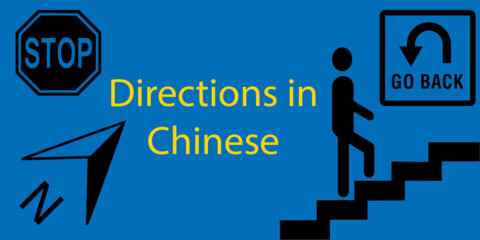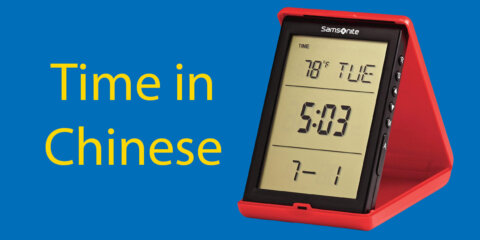Discover the Different Ways to Say Yes in Chinese and When to Use Each One in Specific Contexts
Learning how to say “yes” in Chinese is a lot more interesting than you think!
In Western culture, “yes” is a straightforward word. However, in Chinese culture (depending on the situation) there are several levels of agreement in saying yes.
When you start studying Chinese, 是的 (Shì de; yes), 对 (Duì; right) and 好的 (Hǎo de; okay) are some of the first phrases you learn to express ‘yes’, but when should you use each of them? And are there other ways to confirm something in Mandarin?
In this blog, we’ll answer those questions and guide you through the most common expressions to say yes in Chinese in both casual and formal settings.
Yes in Chinese || Basic Ways to Say Yes
Yes in Chinese || Saying Yes in Casual Conversations
Yes in Chinese || How to Say Yes in Formal Settings
Yes in Chinese || Cultural Considerations When Saying Yes
Yes in Chinese || FAQs
Yes in Chinese || Basic Ways to Say Yes
First, let’s start with the most straightforward way that works in almost every situation. You can use these words to agree with someone or answer a yes or no question.
These words might seem simple, but they’ll cover you in most situations.
是
YesThis little word works pretty much everywhere. It works in a sentence to affirm something.
对
Correct/RightThis is your go-to word when you want to say “that’s right,” in a daily conversation. Super versatile and sounds a bit more casual than 是.
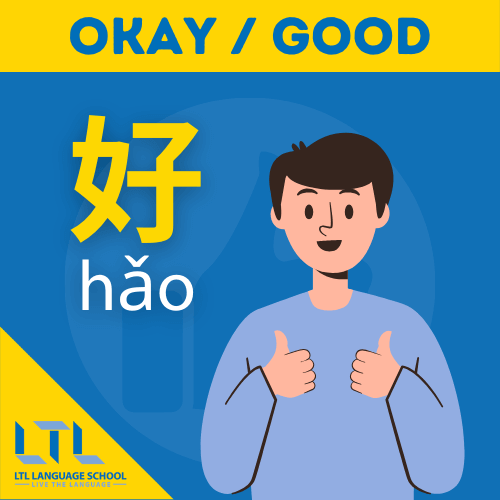
Here’s another one to mix it up a bit:
好hǎo
Okay/Good
It’s like giving a thumbs-up with your voice. For example, when someone suggests grabbing a coffee or when your Chinese friends ask if you want to have dinner together, you can say: 好! hǎo
Yes in Chinese || Saying Yes in Casual Conversations
Daily interactions with your friends or hanging out with colleagues can be more casual. In these contexts, saying yes can be fun and relaxed.
There are some slang and local dialects that you can choose from.
嗯
èn
This is a super casual way to say “yes,” almost like “mm-hmm” in English. It’s perfect for quick replies. It’s like a simple nod to an idea.
Remember, this word is very casual, so don’t use it with someone you respect or someone more senior than you.
For example, in a conversation:
你想一起去吃饭吗?
Do you want to grab something to eat together?嗯
Mm-hmm, sure.对啊duì a
Yeah!
好啊hǎo a
Sure!
是的shì de
Yes it is!
These three examples simply add an interjection after the three basic words to say yes we introduced before.
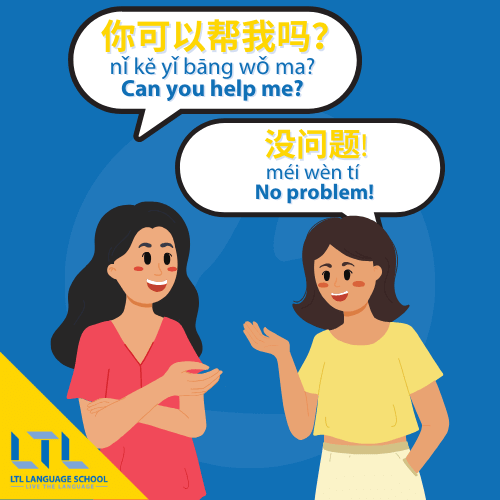
They are a more casual and upbeat way to agree. You often hear them in daily conversations with friends. They definitely sound more relaxing.
没问题méi wèn tí
No problem
This is a casual way to agree to help or join in on something. It’s often used when someone asks you for a favor and you want to sound friendly.
For example:
你可以帮我吗?
Can you help me?没问题!
No problem!我同意wǒ tóng yì
I agree
Just like in a casual conversation with friends, this phrase is helpful to affirm everything your friend says.

It has more connotation to show that you agree. It puts more emphasis on what you agree with.
For example:
我同意,他们的牛肉面太棒了!
Wǒ tóngyì, tāmen de niúròu miàn tài bàng le!
I agree, their beef noodles are fantastic!
Yes in Chinese || How to Say Yes in Formal Settings
It will be a different context in formal settings like business meetings or academic settings.
Saying yes in these scenarios would require you to show respect and be more professional. Here are some words to help you navigate those conversations.
没错méi cuò
That’s correct
This word is slightly more formal than just simply saying yes. It is an excellent option to affirm something that you agree with. It sounds more certain than simply 对 (duì).
没错,这次会议很重要。
That’s right, this meeting is very important.当然dāng rán
Of Course
This is a polite and confident way to say yes when you want to express certainty. It is perfect when you are asked if something is possible.
For example, when you are asked if you can finish the annual report in time, you can say 当然 dāng rán.
诚然
chéng rán
Indeed / Certainly
This is a very formal way to agree with someone, usually your boss or someone who is in a senior position. It has a connotation of respect and sounds very literal.
For example, when someone you respect offers you a suggestion, you can say:
诚然,您的提议很有价值。
Indeed, your suggestion is very valuable.理应如此lǐ yīng rú cǐ
It should be so / That’s how it should be
This is also a formal word that you can use to affirm someone’s opinion.
Typically, you can say this to your client or your boss in a work setting when they address something.
For example:
理应如此,客户满意度是我们的首要任务。
That’s how it should be, customer satisfaction is our top priority.Yes in Chinese || Cultural Considerations When Saying Yes
Just remember, when you’re in China, you’re about to dive into another world that may have some confusing culture.
Sometimes in Chinese, ‘Yes’ doesn’t always actually mean yes – this can be a point of confusion for foreigners!
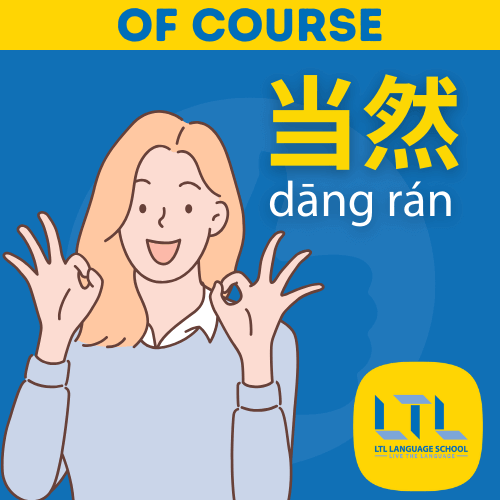
But here’s the deal. In Eastern culture, people aren’t always fans of laying out all their cards on the table. They are used to indirect communication, usually to avoid confrontation and to save their face 面子 miànzi.
Remember when your Chinese colleague nodded and smiled when you suggested a deadline? Yeah, that wasn’t necessarily a “yes.” It might have meant, “I heard you,” or “I’ll think about it,” or even “Not a chance, buddy, but I’m too polite to say so.“
Or how about when your Chinese friend says 好的 hǎo de to your dinner invitation but then never shows up? They might have been saying “yes” to acknowledge your invitation, not to accept it.
Learning to recognize the subtle cues is like learning a whole new language on top of Chinese. But hey, this is the fun part of being in a different culture. Why not embrace the diversity in it?
Yes in Chinese || FAQs
What is the most common way to say “yes” in Chinese?
The most common way to say “yes” in Chinese is 是 (shì), which works in almost every situation.
How do you casually agree in Chinese?
To casually agree in Chinese, you can use 嗯 (èn), which is similar to “mm-hmm” in English, or phrases like 好啊 (hǎo a) meaning “sure!”
What’s a formal way to say “yes” in Chinese business settings?
In formal Chinese business settings, you can use 诚然 (chéng rán), which means “indeed” or “certainly,” to show respect and agreement.
Does nodding always mean “yes” in Chinese culture?
No, nodding in Chinese culture doesn’t always mean “yes.” Sometimes, it just means “I heard you” without implying agreement or commitment.
How can I tell whether a Chinese person’s “yes” is genuine or just being polite?
To determine if a Chinese person’s “yes” is genuine, pay attention to context, tone, and body language. Sometimes, a polite “yes” might actually mean “I’ll think about it” or even a soft “no.”
Want more from LTL?
If you wish to hear more from LTL Mandarin School why not join our mailing list.
We give plenty of handy information on learning Chinese, useful apps to learn the language and everything going on at our LTL schools!
Sign up below and become part of our ever-growing community!

 Hi, my name is Mojca. I am from Slovenia in Europe and I work as a student advisor at our Beihai school.
Hi, my name is Mojca. I am from Slovenia in Europe and I work as a student advisor at our Beihai school.
